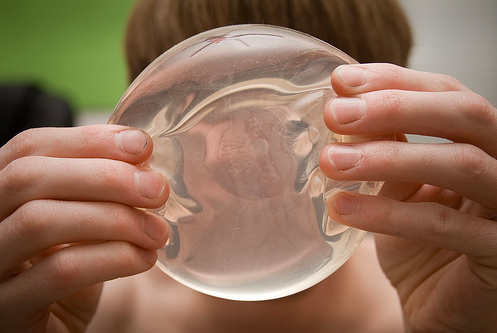
 The road has never been smooth for manufacturers of breast implants. In 1992, the FDA imposed a moratorium on silicone implants for cosmetic purposes, but then lifted it in 2006. Breast-implant marketers have done a lot to assure us that breast implants are safe, from improving how the implants are made to uber-advertising the benefits. Study after study has been done, with some concluding that implants are harmful, others saying saline is safer than silicone, and others saying short-term use is safer than long-term. Still, the use of breast implants has increased every year.
The road has never been smooth for manufacturers of breast implants. In 1992, the FDA imposed a moratorium on silicone implants for cosmetic purposes, but then lifted it in 2006. Breast-implant marketers have done a lot to assure us that breast implants are safe, from improving how the implants are made to uber-advertising the benefits. Study after study has been done, with some concluding that implants are harmful, others saying saline is safer than silicone, and others saying short-term use is safer than long-term. Still, the use of breast implants has increased every year.
A recent report by the FDA shows that we may need to be aware of one rare form of cancer and it’s potential link to breast implants. Recently, the FDA announced that it’s investigating a possible connection between implants and anaplastic large cell lymphoma (ALCL), a rare form of blood cancer affecting three out of 100 million women nationwide who do not have implants, but which has been found in 60 women out of 5-10 million worldwide who do have implants-a higher ratio.
“The U.S. Food and Drug Administration today announced a possible association between saline and silicone gel-filled breast implants and anaplastic large cell lymphoma (ALCL),” the report says, “a very rare type of cancer. Data reviewed by the FDA suggest that patients with breast implants may have a very small but significant risk of SLCL in the scar capsule adjacent to the implant.”
If you’re a woman with breast implants, this is scary to hear. Remember that even though the FDA suspects a connection, they’re a long way from being sure, and even if there is one, it affects only a very small number of people. In addition, the 60 cases reported in this announcement are difficult to verify, as not all were published in scientific literature, and some may be duplicate reports. For now, the FDA is requesting more data from healthcare professionals, and has planned an update of its review in the spring of this year (2011).
The important thing when hearing news like this is not to panic. This study is a long way from being conclusive, and as we know from prior scientific studies, they can often be flat wrong. The important thing is that the FDA is checking up on it. Until we know more, they recommend that you watch for the following signs, and if you notice any, be sure to check with your doctor:
- If you have late onset, persistent fluid around the implant (a seroma), be sure your doctor rules out ALCL.
- Monitor your breast implants yourself and notify your doctor of any changes. Signs of ALCL include swelling and pain-experts say “you can’t miss it.”
- If you haven’t yet decided on reconstructive surgery or implants, discuss the health risks with your doctor.
- This cancer is extremely rare-there is no need to change your regular checkups.
Do you have breast implants? What health concerns do you have?
Photo courtesy the Digg Pirate via Flickr.com.

